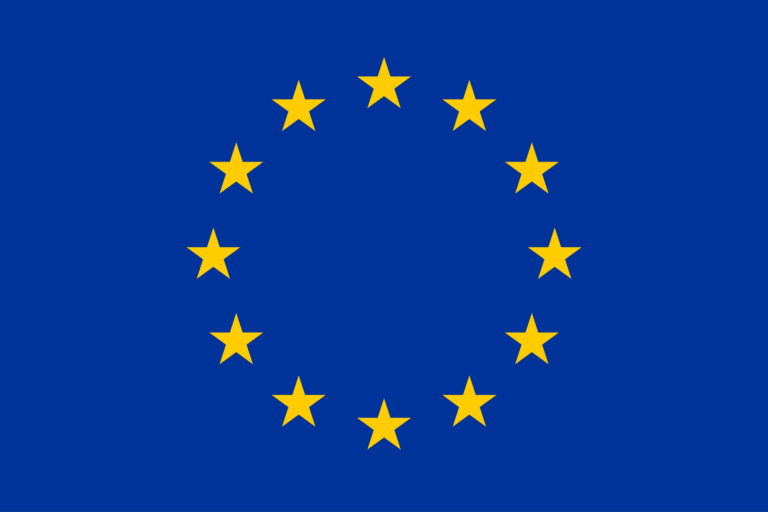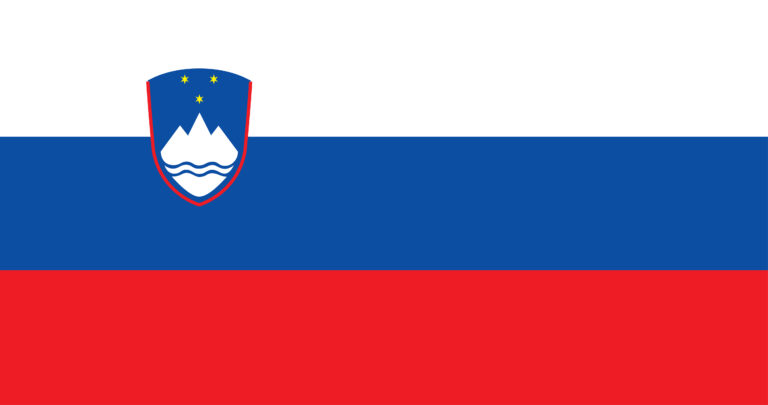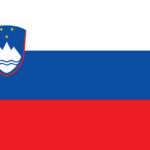Introduction
The physiotherapy profession plays a critical role in healthcare systems worldwide, and France is no exception. As a highly respected field within the French medical landscape, physiotherapy degree France is essential in supporting patient recovery, managing chronic conditions, and enhancing quality of life. The demand for skilled physiotherapists continues to grow in France, offering both job security and professional development opportunities.
For those interested in pursuing a career in physiotherapy, obtaining a physiotherapy degree in France is a well-established and structured path. The Bachelor of Physiotherapy in France provides a comprehensive education, combining theoretical knowledge with extensive hands-on clinical experience. This program prepares graduates to meet the demands of the healthcare sector, equipping them with the skills necessary to treat a variety of physical health issues, from musculoskeletal disorders to neurological rehabilitation.

Students choosing to study physiotherapy in France benefit from a robust educational system, one that emphasizes practical training through internships and offers access to some of Europe’s leading healthcare institutions.
Overview of Physiotherapy Education in France
Physiotherapy programs in France typically follow a standardized curriculum that includes a combination of theoretical coursework, laboratory work, and clinical practice. These programs are designed to equip students with a deep understanding of human anatomy, biomechanics, pathology, and therapeutic techniques. The academic component is complemented by hands-on training, where students are required to complete internships across various healthcare settings.
The French system emphasizes an interdisciplinary approach to education, with students often collaborating with other healthcare professionals, such as doctors and nurses, to provide comprehensive patient care.
Physiotherapy education in France is delivered by accredited institutions, including universities and specialized physiotherapy schools. The Fédération Française des Écoles de Physiothérapie (FFEP) oversees these programs, ensuring they meet national standards. Graduates of these programs are required to register with the Order of Physiotherapists to practice legally in France, further ensuring the integrity and quality of the profession.
Duration and Structure of the Physiotherapy Degree
In France, the path to becoming a physiotherapist typically involves completing a Bachelor of Physiotherapy degree, which lasts for three years. The program is structured to provide a comprehensive education, combining in-depth theoretical courses with substantial practical training. Upon completion, students earn 180 ECTS (European Credit Transfer and Accumulation System) credits, a standard measure used across Europe to ensure academic consistency and transferability of qualifications.
The first year focuses primarily on foundational subjects, such as human anatomy, physiology, and biomechanics. In the second and third years, students delve deeper into specialized areas of physiotherapy, including musculoskeletal, neurological, and cardiorespiratory rehabilitation. During these years, students also begin to develop practical skills through mandatory clinical placements in hospitals, rehabilitation centers, and private practices.
Practical training is a key component of the program, accounting for a significant portion of the total study time. Students are required to complete at least 1,200 hours of clinical practice over the course of their studies.
Admission Requirements for Physiotherapy Programs in France
The primary qualification for entry is the successful completion of secondary education, equivalent to the French Baccalauréat, a high school diploma that is a prerequisite for university-level education in France. This diploma must be obtained in a scientific or health-related stream, as the coursework in physiotherapy involves a strong foundation in subjects such as biology, anatomy, and physics.
Once the Baccalauréat requirement is met, applicants must pass an entrance examination or participate in a competitive selection process. The specific exams or competitions vary by institution but generally consist of written tests that assess a candidate’s knowledge in relevant subjects like biology, physics, and general healthcare principles. Some schools may also require an oral examination or interview as part of the selection process, where candidates are evaluated on their motivation, understanding of the profession, and ability to work in a healthcare setting.
For international students, additional criteria may apply. Applicants from outside the European Union are typically required to have their academic credentials evaluated for equivalency to the French Baccalauréat. They may also need to provide proof of proficiency in the French language, as most physiotherapy programs in France are taught in French. Some institutions may require an official language test, such as the DELF (Diplôme d’Études en Langue Française), to ensure students can effectively participate in coursework and clinical training.
Furthermore, international students may need to submit visa applications and other documentation to study in France.
Key Features of Physiotherapy Schools in France
France is home to several prestigious institutions that offer high-quality education in physiotherapy.
One prominent institution is the École de Kinésithérapie de Paris (EKP), which is widely recognized for its robust physiotherapy program. With a focus on musculoskeletal, neurological, and cardiorespiratory rehabilitation, the school ensures that students receive well-rounded training to address a wide spectrum of patient needs.
In addition to EKP, several public universities across France offer physiotherapy programs, often in partnership with healthcare facilities for clinical placements. These programs are accredited by the Fédération Française des Écoles de Physiothérapie (FFEP), which maintains high standards for physiotherapy education throughout the country. Some universities in larger cities, such as Paris, Lyon, and Marseille, have partnerships with renowned hospitals and clinics, providing students with access to state-of-the-art training environments.
Another well-regarded institution is Université de Lille, which offers an accredited physiotherapy program as part of its health sciences faculty. The program includes a strong clinical focus, with internships in specialized centers that prepare students for a variety of rehabilitation practices.
While institutions like Université Paris-Descartes (Université de Paris) and Université Claude Bernard Lyon 1 also offer physiotherapy programs, they are often linked with hospitals that facilitate specialized internship placements, providing students with exposure to diverse medical settings.
The Role of Practical Training and Internships
Practical training is a critical component of physiotherapy education in France, playing a vital role in preparing students for professional practice. The French physiotherapy curriculum emphasizes hands-on experience, requiring students to complete a minimum of 1,200 hours of clinical training in physiotherapy during their studies.
Internships take place in various healthcare facilities, including hospitals, private practices, and rehabilitation centers, offering a diverse range of experiences. Hospitals, for example, provide students with exposure to acute and complex cases, where they work alongside multidisciplinary teams to assist in the rehabilitation of patients recovering from surgery, injuries, or medical conditions.
Private practices offer a different type of experience, focusing on individualized care for patients with chronic conditions or those seeking injury prevention and rehabilitation services. Interns in private practices often work closely with physiotherapists to develop tailored treatment plans, enhancing their ability to communicate and collaborate with patients on their recovery journey.
Rehabilitation centers, which specialize in the recovery of patients with long-term conditions, also serve as valuable internship sites. These centers provide students with the opportunity to work with patients who require long-term care, such as individuals with neurological disorders, post-surgical patients, or those undergoing rehabilitation after strokes or traumatic brain injuries.
In addition to the required internship hours, students are typically supervised by experienced physiotherapists who mentor them throughout the training process. This mentorship is essential in guiding students as they transition from classroom learning to practical application, providing valuable insights into patient care, therapeutic techniques, and professional conduct.
Tuition Fees and Financial Considerations
The cost of studying physiotherapy in France varies depending on the institution. Public universities, which offer physiotherapy programs as part of their health sciences faculties, tend to have lower tuition fees.
For international students, tuition fees at public institutions may be higher, particularly for those from outside the EU. It is essential for prospective international students to check the specific fee structure of their chosen institution, as these costs are subject to change.
In addition to tuition, students should factor in living expenses, including accommodation, food, transportation, and insurance. The average cost of living in France varies by city, with Paris being one of the more expensive locations.
While the tuition fees for physiotherapy in France are relatively affordable compared to other European countries, students may seek financial assistance to help cover the costs. French universities and private schools may offer a range of financial aid options, including merit-based scholarships, need-based grants, and loans. Some institutions also offer specific scholarships for international students, which can significantly reduce the financial burden.
The French government provides financial support to students through the CROUS (Centre Régional des Œuvres Universitaires et Scolaires), which offers low-interest loans and subsidized accommodation for eligible students.
Certification and Licensing After Graduation
Upon completing their physiotherapy degree in France, graduates must undergo a certification process to legally practice as physiotherapists. The primary step in this process is registering with the Order of Physiotherapists (Ordre des Masseurs-Kinésithérapeutes), a regulatory body that oversees the profession in France. This registration is mandatory and ensures that all practicing physiotherapists meet the professional standards set by the French healthcare system.
The certification process is designed to ensure that graduates possess the necessary qualifications and skills to provide safe, effective, and ethical care to patients. After graduation, students must submit proof of their degree, along with any required documentation such as identification and proof of residency to the Order of Physiotherapists. Once registered, physiotherapists are granted the right to practice in France, and they are listed in the official directory of licensed professionals, which can be accessed by employers and patients alike.
Becoming a licensed physiotherapist in France not only involves registering with the Order but also adhering to the ethical and professional standards set by the organization. Practitioners are required to follow the code of conduct and are subject to disciplinary actions if they fail to meet the prescribed standards of care.
Job Opportunities and Career Prospects for Physiotherapists in France
The job market for physiotherapists in France is robust, with a high demand for skilled professionals across various healthcare sectors. As the population ages and the need for rehabilitation services increases, the demand for physiotherapists continues to grow. This is especially true in the context of chronic conditions, post-surgical rehabilitation, and the rise in sports-related injuries, all of which require specialized physiotherapy care.
Physiotherapists in France have diverse job opportunities in several settings, including hospitals, private clinics, rehabilitation centers, and sports centers. In hospitals, physiotherapists work in multidisciplinary teams, helping patients recover from surgery, injuries, strokes, and other medical conditions. Rehabilitation centers offer physiotherapists the chance to work with long-term patients who require ongoing physical therapy, including those recovering from major surgeries or dealing with neurological disorders. Private clinics provide opportunities for physiotherapists to treat patients on a more individualized basis, often focusing on musculoskeletal and orthopedic rehabilitation. Sports centers are another prominent employment setting, where physiotherapists work with athletes to prevent injuries, enhance performance, and aid in recovery.
In addition to these traditional healthcare settings, physiotherapists in France can also work in home care, providing services to patients who are unable to travel to clinics or hospitals. Some physiotherapists also find employment in educational institutions, training future physiotherapy professionals, or in research, contributing to the advancement of physiotherapy practices and treatment methods.

Physiotherapy job opportunities in France are abundant, with positions available across a wide range of settings. The demand for skilled physiotherapists ensures favorable career prospects and offers the potential for career advancement through specialization. With a competitive salary range and a growing need for physiotherapy services, the profession offers a solid foundation for long-term career success.








